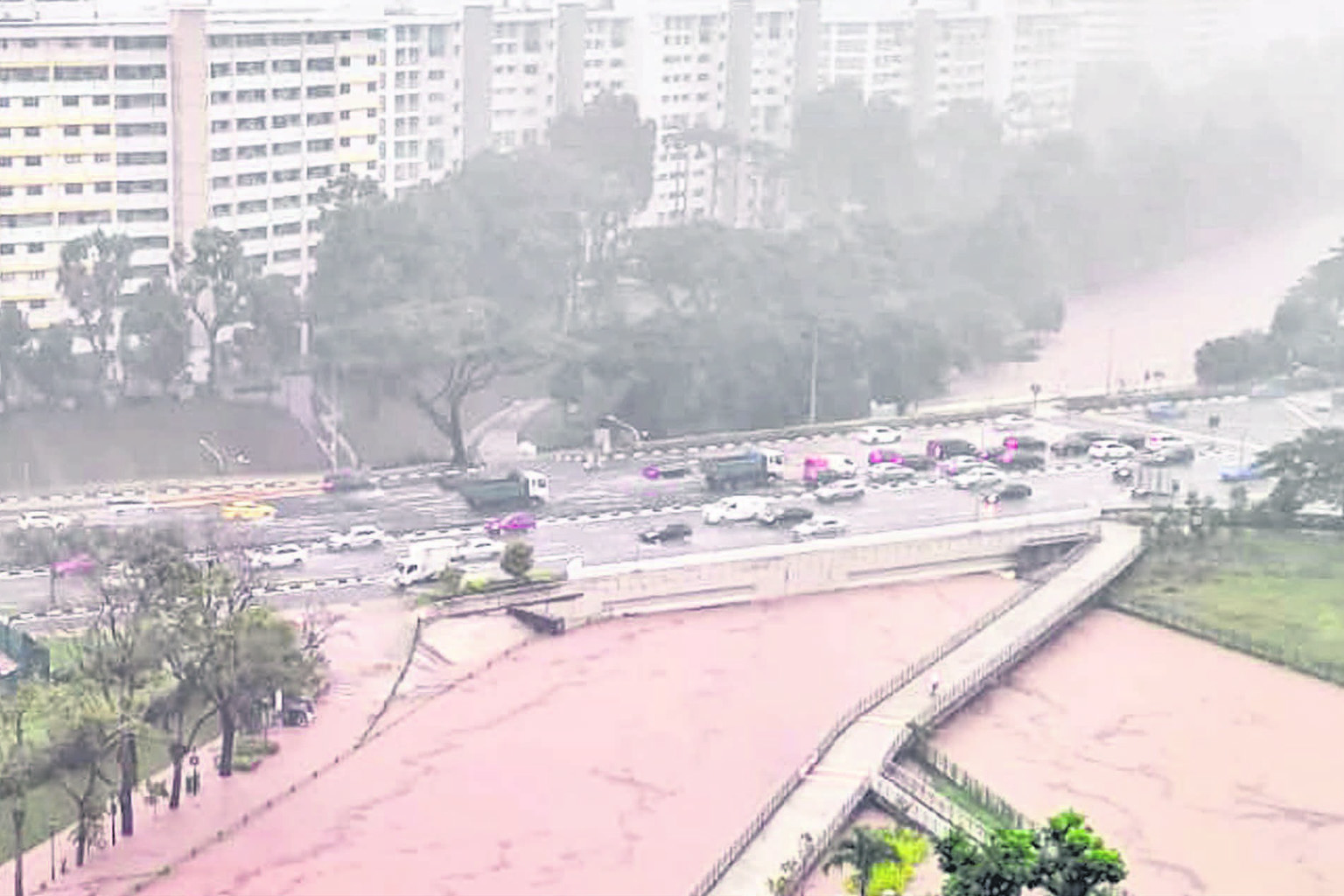S'pore tackling perils of climate change - flash floods, rising seas
Sea level rise, coupled with storm surges and tides, can cause devastating impact: Experts
Sign up now: Get ST's newsletters delivered to your inbox

RECORD RAINFALL: Ulu Pandan last Saturday experienced Singapore's highest daily rainfall for April since 1980. The rain, which the authorities described as exceptionally prolonged and heavy, resulted in flash floods in several locations on the island.
PHOTO: CHONG JUN LIANG, MIMI JIN DOO RANG/FACEBOOK, REUTERS
Climate change is causing waters to rise in and around Singapore - and the flash floods that hit the city last Saturday were but one symptom of a warming world.
Climate change will bring with it more frequent bouts of intense rainfall that could overwhelm drainage systems. It is also driving up sea levels - a threat for low-lying Singapore - experts said at a webinar organised by The Straits Times yesterday.
One of the three panellists, Ms Hazel Khoo, director of PUB's coastal protection department, said the national water agency is working to tackle the flooding threat holistically, by studying the twin effects of rising sea levels and more intense rainstorms on the country.
Pointing to last Saturday's deluge, Ms Khoo said western Singapore had over a few hours that day received more than 90 per cent of the average monthly rainfall for the entire month of April. "This is something that we can expect more frequently," she said at the webinar on the eve of Earth Day.
In 2019, a United Nations report found that if the amount of planet-warming emissions remains high, sea level rise in the centuries ahead could exceed rates of several centimetres per year, instead of the current increase measured in millimetres per year.
One panellist, Professor Benjamin Horton, director of the Earth Observatory of Singapore at the Nanyang Technological University (NTU), noted that South-east Asia is one of the regions most vulnerable to the rising seas. Many island archipelagos are low-lying areas where a large number of people live.
"People here think what's happening in Greenland or Antarctica... will remain in these high-latitude locations. But it's quite simply not true," he said. "Changes in Greenland, the Arctic, and Antarctica influence the weather and climate, and they will influence sea levels here in Singapore."
Antarctica is a huge ice sheet that exerts a gravitational pull on the waters around it.
"If you lose that mass, the water flows away and you get a greater rise in sea level in regions that are distant from these ice sheets, such as the tropics," said Prof Horton.
Sea level rise will also affect natural habitats in the region, said the third panellist, Dr Zeng Yiwen, senior research fellow at the National University of Singapore's Centre for Nature-Based Climate Solutions.
South-east Asia is home to large swathes of natural habitats that also help in humanity's fight against climate change by sucking up lots of heat-trapping carbon dioxide through photosynthesis.
Mangroves also have the ability to trap sediment among their roots, and can keep pace with sea level rise to an extent.
But rising sea levels could dilute their ability to do so. "The problem arises when we develop areas behind the mangroves," Dr Zeng said.
"When we develop the land areas, that serves as a barrier, and that blocks all these habitats from moving further inland to adapt to the sea level rise."
Bringing the global issue of sea level rise back to Singapore, PUB's Ms Khoo said the effects of sea level rise, coupled with other impacts like storm surges and the effects of the tides could result in extreme sea level events as high as 5m in Singapore by the end of the century.
If this happens at the city-East Coast stretch of Singapore's coastline, it could mean East Coast Park would be partially submerged.
"Even landmarks like the Sports Hub will also not be spared," she said. "The impact and damage will definitely be devastating and, therefore, that calls for action now."


